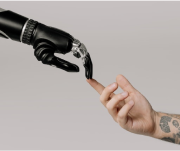扫码阅读
手机扫码阅读
我们真的不擅长估算吗?
 793 2023-07-22
793 2023-07-22
我们非常重视原创文章,为尊重知识产权并避免潜在的版权问题,我们在此提供文章的摘要供您初步了解。如果您想要查阅更为详尽的内容,访问作者的公众号页面获取完整文章。
酷家乐项目管理

扫码关注公众号
译者序摘要
本文由敏捷开发领域的专家Mike Cohn撰写,探讨了团队在工作中常遇到的估算问题。译者指出估算失败常导致团队沮丧,并提出本文通过实例和数据分析,展示了人们在估算方面实际上比预想的要好,为读者带来信心。
估算能力的探讨摘要
估算通常被视为一项挑战,团队往往对此感到恐惧,担心估算结果被老板作为压力来源。作者通过个人经历指出,我们对于熟悉事务的估算相当准确,问题通常出现在不熟悉的领域。奥斯陆大学的马格尼·约尔根森教授的研究显示,众多估算的准确率在20%到30%之内,并没有明显低估的趋势。
为何存在估算不准的共识摘要
一个可能的解释是,被低估的项目更容易被批准并执行,而被高估的项目则可能从未启动。这种现象造成了人们认为开发团队总是延期的错误印象。
过度自信和估算误差摘要
作者认为过度自信是导致估算不准确的主要原因。他通过课堂练习展示,即使在要求90%的把握时,人们仍然倾向于给出比实际情况更窄的估算范围,从而反映了对自己估算能力的过度自信。
改善估算能力摘要
尽管存在过度自信的问题,研究表明通过反馈和团队讨论,估算者的准确率是可以提高的。一项针对软件开发工作的研究发现,程序员在得到反馈后,估算的准确率有显著提升。
结论摘要
作者邀请读者分享自己的估算经验,询问是否认同估算能力不足的看法,并探讨团队合作时是否能提高估算的准确性。
想要了解更多内容?
酷家乐项目管理

扫码关注公众号
酷家乐项目管理的其他文章
有模有样就是高绩效团队?——记一次“激活”与“交融”的团队教练工作坊设计
追求卓越的敏捷团队怎么能只停留在“有模样”呢?还必须“有灵魂”!
看Daily Scrum改进实践如何提升敏捷团队效能
作为Scrum Master的你\x0a还在为提高Daily Scrum效率而苦思冥想吗?\x0a还在为提升敏捷团队效能而不知所措吗?\x0a还在费心尽力Sprint的迭代完成率依旧很低而心力交瘁吗?
有趣有料的Scrum Master 培训
企业内部对Scrum Master进行基础理论认真培训介绍。
【2019全球最佳敏捷文章精选】敏捷社区信奉着某种不切实际的幻想
【2019全球最佳敏捷文章精选】敏捷社区信奉着某种不切实际的幻想
深入浅出互联网技术类项目管理的二三事
本文结合群核科技技术类项目管理流程,浅谈下技术项目特有的一些挑战点及对应的解决方案。
加入社区微信群
与行业大咖零距离交流学习


PMO实践白皮书
白皮书上线
白皮书上线








